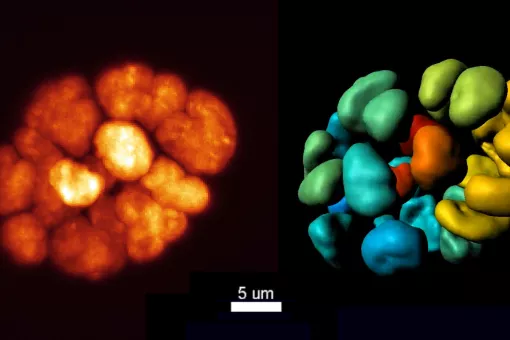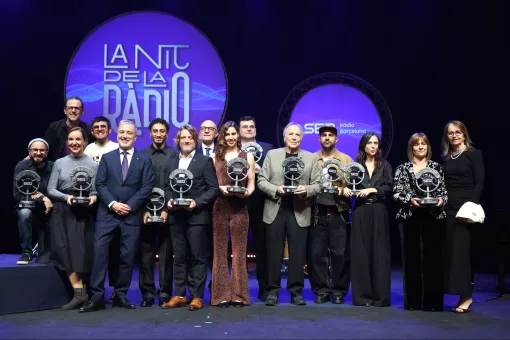Images
The agreements drawn up by IRB Barcelona with various I+D programmes aim to strengthen technology transfer in order to benefit society.
Headed by Modesto Orozco, the Molecular Modelling and Bioinformatics Group at the Institute for Research in Biomedicine (IRB Barcelona) is to collaborate with the NEOGENIUS project, which involves the pharmaceutical companies Almirall, Esteve, Palau Pharma and Proteomika. This project seeks to search for new analgesics and diagnostic tools for arthrosis.
In addition to this collaboration agreement, another has been signed between IRB Barcelona, CSIC and the biotech companies Antibody Bcn and Immunostep in order to identify new protein interactions that have potential diagnostic applications. This agreement, which also involves Modesto Orozco’s lab, forms part of the EpiTag project included in the INNPACTO call, organized by the Ministry of Science and Innovation (MICINN).
I+D Programmes
The NEOGENIUS project is one of the research programmmes selected by the CENIT (Consorcios Estratégicos Nacionales en Investigación Técnica) to stimulate public-private and industrial cooperation on large-scale projects that have a wide scientific and technical impact. NEOGENIUS focuses on the search for new analgesics for arthrosis, a field in which the four pharmaceutical companies that form Neogenius Pharma AIE and that promote the project have extensive experience.
The funding programme INNPACTO of the MICINN aims to stimulate I+D cooperation projects between research organisations and the private sector. Modesto Orozco’s group will provide the EpiTag project access to its facilities at IRB Barcelona in order to search for new peptide labels that allow the development of more efficient drugs that have fewer side effects.
Transferring research results to benefit society
Modesto Orozco’s lab performs basic research on cell recognition processes of biological relevance that may have applications in drug discovery. During his career, Orozco provided consultancy services to several pharmaceutical and biotech companies and has also served on numerous national and international numerous panels and scientific agencies. Through these collaborations, Orozco will study the interaction models of potential drug candidates.
IRB Barcelona is a public institute devoted to basic and applied research at the interface between biology, chemistry, biophysics and biocomputation. It comprises 28 research groups over the following five programmes: Cell and Development Biology; Structural and Computational Biology; Molecular Medicine; Oncology; and Chemistry and Molecular Pharmacology. Headed by Joan J. Guinovart –with adjunct director Joan Massagué-, IRB Barcelona was founded in 2005 by the Government of Catalonia (Generalitat de Catalunya), and is located at the Barcelona Science Park. Among the aims established by IRB Barcelona is to transform basic research into innovation and promote collaboration with the biotech sector in order to benefit public health. During 2010, IRB Barcelona groups collaborated in 14 regional, national and international projects.
About IRB Barcelona
The Institute for Research in Biomedicine (IRB Barcelona) pursues a society free of disease. To this end, it conducts multidisciplinary research of excellence to cure cancer and other diseases linked to ageing. It establishes technology transfer agreements with the pharmaceutical industry and major hospitals to bring research results closer to society, and organises a range of science outreach activities to engage the public in an open dialogue. IRB Barcelona is an international centre that hosts 400 researchers and more than 30 nationalities. Recognised as a Severo Ochoa Centre of Excellence since 2011, IRB Barcelona is a CERCA centre and member of the Barcelona Institute of Science and Technology (BIST).






